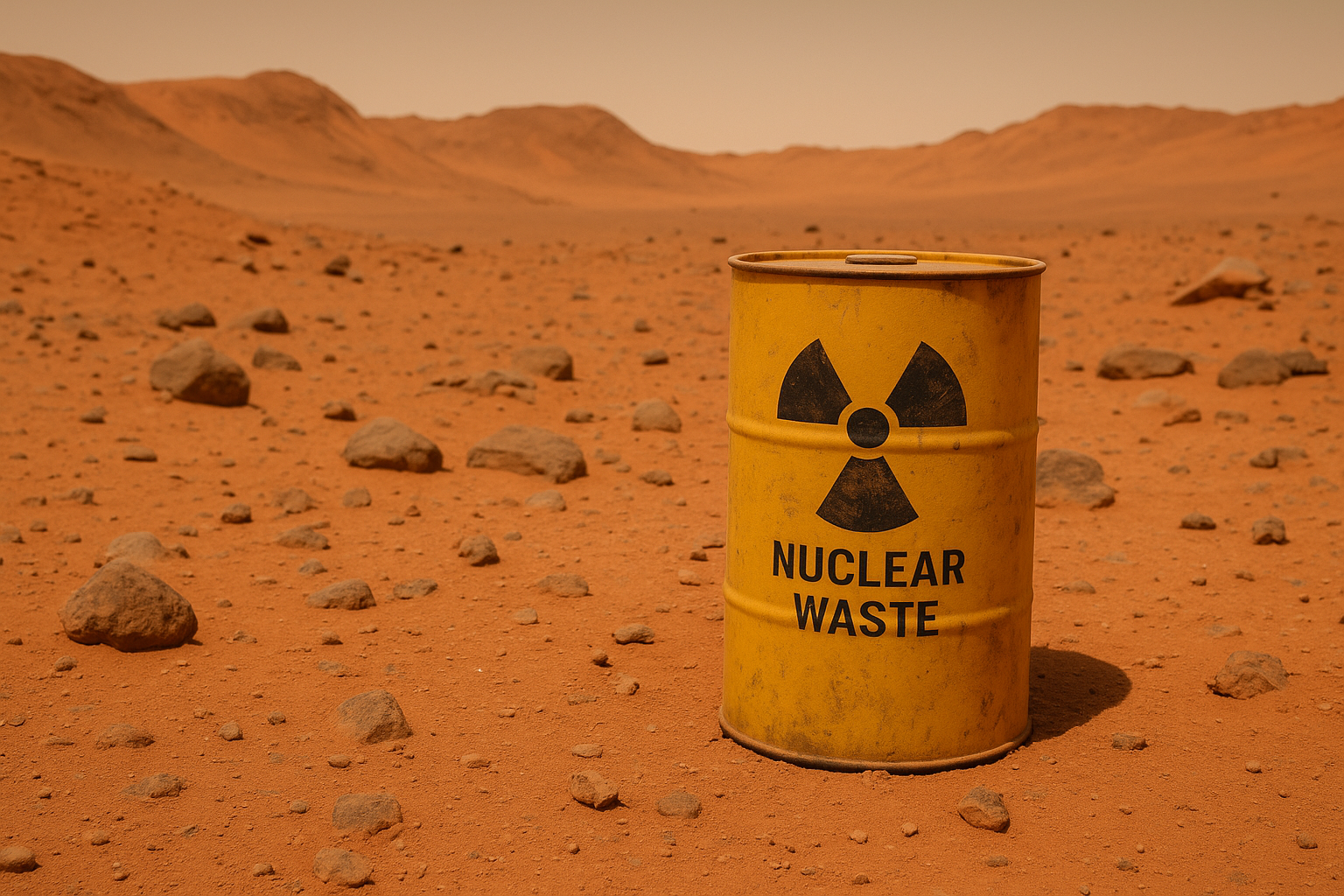Sellafield Nuclear Plant to Begin Sending Waste to Mars in “Bold Leap for British Innovation”

The Sellafield nuclear facility in Cumbria has announced an ambitious new plan to solve the UK’s radioactive waste storage crisis — by firing it all to Mars.
The “Project Red Disposal” initiative, unveiled this morning by the Department for Energy Security and Net Zero, will see specially modified rockets transport barrels of high-grade nuclear waste to the Red Planet “in an environmentally responsible and largely accurate trajectory.”
THE PLAN
Under the scheme, waste currently stored in vast concrete silos at Sellafield will be loaded into reinforced titanium barrels, sealed with “three layers of duct tape,” and launched into space from a converted car park behind the Workington B&Q.
A Sellafield spokesperson said:
“Mars has no significant wildlife, no human population, and — according to our calculations — a less than 7% chance of developing sentient life in the next billion years. So, in many ways, it’s ideal for the storage of material that remains deadly for 250,000 years.”
ROCKETS & RISKS
The launch vehicles will be based on Britain’s new Budget-Orbital Waste Transporter (BOWT), a cost-effective rocket built primarily from retired Blackpool tram parts and repurposed oil drums.
While critics have raised concerns about “the very real possibility” of a launch failure scattering radioactive debris over Cumbria, project leader Dr. Neil Jubb insists the risk is “statistically low” and that residents will be given complimentary Sellafield-branded ponchos “just in case.”
“Yes, technically, if a rocket explodes on take-off, it would rain mildly to moderately lethal waste over a 40-mile radius,” Jubb admitted. “But we’ve done three test launches, and only one of them exploded. That’s a solid pass rate in the nuclear industry.”
MARTIAN REACTION
NASA scientists have privately expressed “mild discomfort” at the UK’s decision, noting that Mars is being considered a possible site for future human colonisation.
An anonymous engineer at the Jet Propulsion Laboratory said:
“It’s a bit like if you told your estate agent you were interested in buying a house, and they filled the basement with asbestos. But hey, it’s Britain’s planet too, I guess.”
LOCAL IMPACT
In West Cumbria, reactions have been mixed. One Whitehaven resident told The Cumberland Chronicle:
“If it means fewer barrels stacked behind the Spar, I’m all for it. But if a rocket lands in my allotment, I’m billing them for the tomatoes.”
Meanwhile, local pubs have already renamed drinks in honour of the scheme, including the Martian Meltdown (a flaming Sambuca) and the Uranium Sunrise (orange juice, vodka, and a suspicious green syrup).
COST & FUTURE PLANS
The Government has budgeted £14 billion for the project, with the first launch scheduled for early 2026, “weather permitting and provided the tide’s out.”
If successful, ministers say they will explore the possibility of sending other unwanted British items to Mars, including:
- Disused Crossrail drilling equipment
- The entire contents of the House of Lords
- The Northern line between 11pm and 2am on Fridays
Energy Secretary Amanda Millington hailed the move as “a proud moment for Britain.”
“We were once a nation that led the world in shipbuilding and railways. Now, we lead the world in making other planets deal with our problems.”




